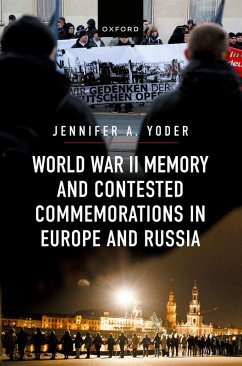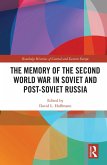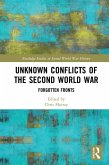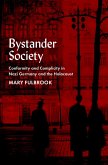Instrumentalization of the wartime past for political gain is the subject of this study of eleven World War II commemorations. Using a comparative, conceptually original approach, Yoder identifies the actors who manipulate memory surrounding wartime anniversaries, such as the bombing of Dresden and ceremonies to honor fallen soldiers and fascist collaborators. The cases of memory contestation span three geographic regions, Western Europe, Eastern Europe, and Russia, recognizing that each developed distinctive interpretations of the war and different patterns of memory politics. This empirically rich study reveals the grievances that motivate memory challengers and their strategies for shaping the commemoration discourses and rituals. The memory challengers' toolkit includes varieties of emotional manipulation, subtle distortion, revisionism and full-scale denial. The study finds that, while there are differences in context and strategy across cases and regions, there are also areas of convergence. Moreover, a memory challenge in one country can spill over into others with serious consequences for foreign relations. While World War II Memory and Contested Commemorations in Europe and Russia deals with debates and narratives about events in the last century, its focus is on power, persuasion, and identity in the present.
Dieser Download kann aus rechtlichen Gründen nur mit Rechnungsadresse in A, B, BG, CY, CZ, D, DK, EW, E, FIN, F, GR, HR, H, IRL, I, LT, L, LR, M, NL, PL, P, R, S, SLO, SK ausgeliefert werden.









